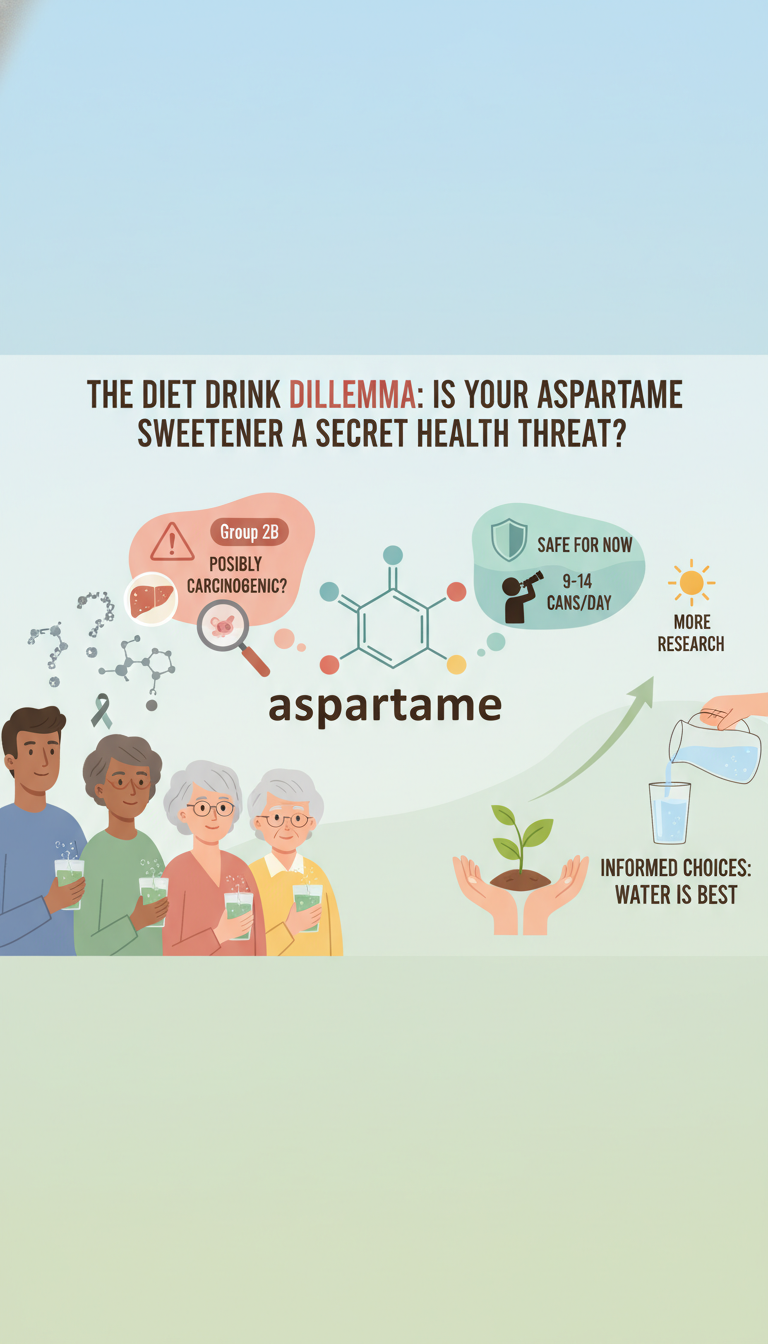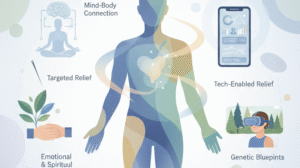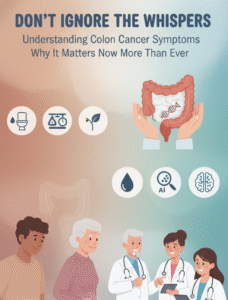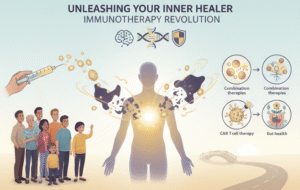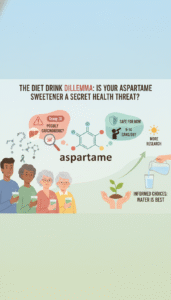I. The Sweetener in Your Sip: What Exactly is Aspartame?
We all want to make healthier choices, and sometimes that means reaching for a “diet” drink, a low-sugar juice, or a flavored water. But have you ever stopped to wonder about the ingredient that makes these drinks taste sweet without the calories? It’s often aspartame, an artificial sweetener that’s been the subject of much debate.
Aspartame is made from two amino acids: aspartic acid, which is a natural part of protein, and phenylalanine. This combination creates a sweetener that’s incredibly potent, meaning you can use much less of it to achieve the same level of sweetness as sugar. Because you use so little it adds practically no calories.
But here’s the big question: Is it safe? Aspartame has been around for decades, but recent news has stirred up concerns about its potential link to cancer. Let’s take a closer look at the controversy.
II. The Great Debate: Health Agencies at Odds
In 2023, the World Health Organization (WHO), through its International Agency for Research on Cancer (IARC), classified aspartame as “possibly carcinogenic to humans.” This classification, known as Group 2B, was based on “limited evidence,” specifically related to liver cancer. But what does “limited evidence” really mean? It’s important to understand that this doesn’t mean aspartame definitely causes cancer. It means the evidence isn’t strong enough to draw a firm conclusion.
On the other hand, other major health organizations like the WHO/JECFA (Joint Expert Committee on Food Additives), the FDA (Food and Drug Administration) in the United States, and the EFSA (European Food Safety Authority) maintain that aspartame is safe for consumption within acceptable daily intake (ADI) limits. The ADI is the amount of a substance that people can consume daily over their entire lifetime without any expected health risks. For aspartame, the ADI is quite generous – an average adult would need to drink more than 9-14 cans of diet soda every day to exceed it!
So, why the disagreement? These agencies have different roles. IARC focuses on hazard identification, which means determining if something could potentially cause cancer. Other agencies like JECFA, FDA and EFSA perform risk assessments, which consider both the hazard and how likely it is to occur at typical levels of exposure. Some experts have pointed out “significant shortcomings” in the studies reviewed by IARC, which might explain the conflicting conclusions.
III. A History of Controversy and Conflicting Clues
Aspartame’s journey to our shelves hasn’t been smooth. From the very beginning, its approval process was fraught with controversy. There were old animal studies that raised concerns, and allegations of scientific irregularities that fueled doubt. These early issues have left a lingering sense of unease for some people.
More recent human studies have provided mixed signals. For example, the NutriNet-Santé study suggested a slight link between high aspartame intake and certain cancers, like breast cancer and obesity-related cancers. However, it’s crucial to remember that these are just suggestions, and many other large studies have found no clear association between aspartame and cancer.
It’s also vital to note that individuals with phenylketonuria (PKU), a rare genetic disorder, must avoid aspartame. People with PKU cannot properly process phenylalanine, one of the amino acids in aspartame. This underscores an important point: what is “safe for most” isn’t necessarily “safe for all.” If you have PKU, it is important to avoid aspartame to protect your health.
IV. What’s Next for Our Sweet Future?
The good news is that everyone agrees on one thing: we need more research. We need high-quality, long-term studies to fully understand the effects of aspartame across all life stages. These studies should consider different populations, varying levels of consumption, and potential long-term effects.
In the meantime, we’re seeing a growing trend: consumers and manufacturers are turning towards plant-based sweeteners like stevia and monk fruit. This shift is driven by health concerns and a desire for “cleaner” labels – a sense that these sweeteners are more natural and less processed.
So, what should you do? For now, moderation is key. Whether it’s aspartame or any other sweetener, consuming too much of anything isn’t ideal. As the science continues to evolve, focusing on water and unsweetened beverages remains the healthiest choice. Listen to your body, stay informed, and make choices that feel right for you.

